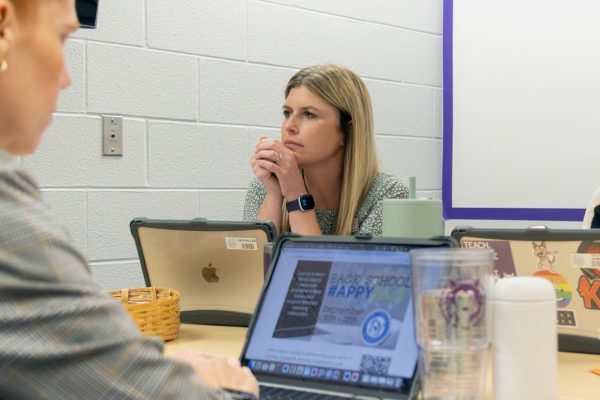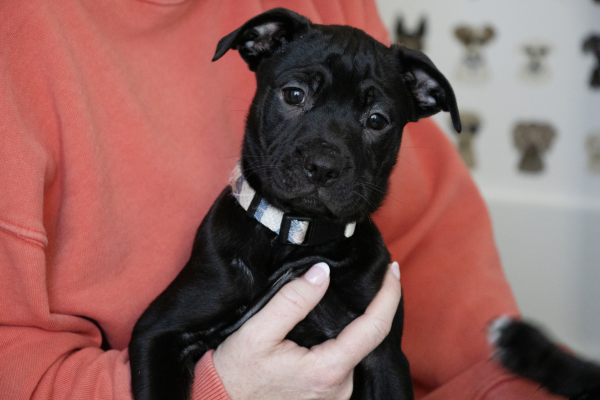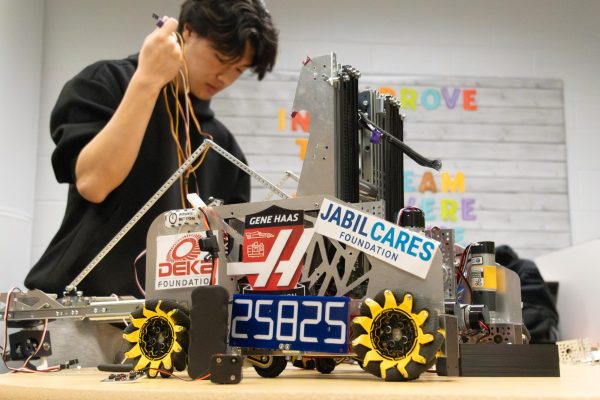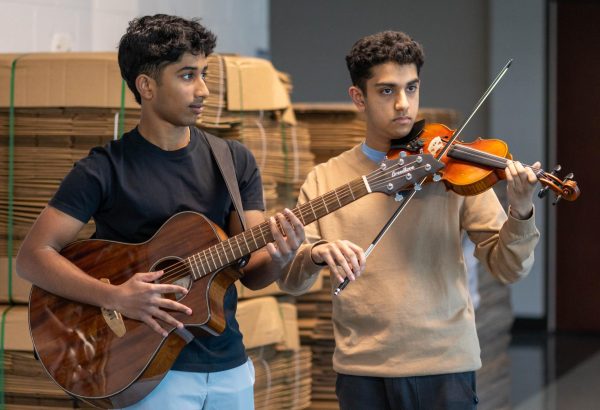At what cost?
Sex trafficking is a form of human trafficking and spreading awareness is essential for minimizing new cases.
When survivor Kristy Childs left home at age 12 to escape what she described as a hostile environment, she was forced into sexual exploitation. Childs was sex trafficked until she was 36 years old.
“I began running away from an abusive situation in my home, and [I kept] being put back into that home when I was found by the juvenile system,” Childs said. “I recognized that to get away, I was going to have to get out of that town, and I began hitchhiking. That’s when the exploitation started.”
Childs said there is never-ending danger for those who are sexually trafficked.
“Besides the abuse that you could endure at the hands of the trafficker, you are also at the mercy of the men who buy you,” Childs said. “And we know that women and girls in prostitution are targeted by serial killers, by rapists and by people that just want to cause harm.”
Overland Park Police Detective Derrick Wilczek said Kansas and federal statutes define sex trafficking as engaging in a commercial sex act through force, fraud or coercion by being transported or recruited into the activity.
Sex trafficking is often described as modern-day slavery. Victims are forced to exploit themselves for the benefits of others with little to no benefit for themselves.
There is a common misconception that Kansas City has unusually high rates of new human trafficking cases. Wilczek explained how this rumor stems from human trafficking victims being transported through Kansas City, as it is bisected by both I-35 and I-70.
“We’ve had plenty of cases where I’ve had people come from other states, but they’re choosing Kansas City while they’re on their way to a different location,” Wilczek said. “It’s kind of just a logical stop. Like when you plan a trip, you plan stops where you would stay at a hotel.”
An FBI agent who specializes in human trafficking, and asked not to be identified by name, explained Kansas City is not actually a “hot spot” for sex trafficking.
Wilczek said many people have another misconception: being trafficked always takes place by abduction. In reality, sex trafficking usually stems from traffickers posing as someone in an intimate relationship.
“What we’ll find is, these guys will try to pretend to be a boyfriend, or the girls will try to pretend to be a girlfriend to their victims,” Wilczek said. “They’ll develop this really tight emotional bond, then slowly introduce the idea that they’re going to try to engage in this behavior for money to support each other.”
The FBI agent said anyone can be a victim, and anyone can be a potential trafficker.
“Being a pimp (a sexual trafficker) spans all the demographics; being a victim spans all the demographics. Anyone is vulnerable,” the FBI agent said.

As long as there is a market for sexual exploitation, there will be people who are trafficked. Childs said anyone could potentially be involved in supporting prostitution.
“It’s a profitable market, so these are everyday kinds of guys that buy people,” Childs said. “It’s the pastors at church, it’s school teachers, it’s people that are…in businesses and then it’s just our everyday labor worker.”
Metropolitan Organization to Counter Sexual Assault (MOCSA) Advocacy and Outreach Specialist Jorge Basaure-Carrington said this market is influenced by the media.
“My job is to help educate my clients to help them understand that there are things facing our society that facilitate sexual violence,” Basaure-Carrington said. “Whether it’s in our pop culture, [or] things that we see on TV or on the news.”
The content people consume every day encourages the idea that women should unquestioningly obey men, Basaure-Carrington said.
“Pop culture is rife with rape culture promotion,” Basaure-Carrington said. “There have been songs in the past that have been wildly popular that if you kind of dissect the lyrics, you stop and think, ‘Oh, wow, you know, this person literally is wanting women to be subservient.’”
Engaging in sexual activity when enthusiastic consent is not given has also become normalized in daily life, Basaure-Carrington said.
“Or, there’s this kind of expectation that if a man or someone makes a sexual advance at you, that you have the responsibility to accept it,” Basaure-Carrington said.
The perpetuation of rape culture results in real victims, such as Childs. The exploitation she endured as a sex trafficking victim led to her wanting to take her own life, but she said a miracle saved her.
“It had been going on for many years, and I was just praying to die,” Childs said. “I was extremely fortunate to get pregnant. Not planned, but through hearing my son’s heartbeat, everything changed for me.”
When Childs had a motivating force to keep her going, she began to acquire the skills needed for a job outside of exploitation.
“I had to get marketable skills… junior high was probably as far as I made it. I don’t even know if I completed that. So, I had to get a high school equivalency and get some training and marketable skills to get a job. So, that’s what I did,” Childs said.
When Childs was able to create a life she wanted for herself, she began the organization Veronica’s Voice to aid other survivors.
“When I did get out, I recognized that there were others that had very similar experiences that I had… and I wanted them to know there was something more,” Childs said.
Women who are sex trafficked are often stigmatized and treated as less than other individuals. Childs uses her own story to inspire and assist others who have been in her position.
“We’re treated as criminals. [I wanted to] come out with my own story and history and why I wanted to do something about it,” Childs said. “I had to expose that to get support from the community to be able to help the women that I wanted to help.”
Part of the mission at Veronica’s Voice is to provide care to all victims of sexual exploitation, despite what their past may hold.
“If they want out, and their only means of surviving is by having to compromise themselves sexually and they want something different, we believe they deserve something different,” Childs said.
Veronica’s Voice is an important outlet for trafficking victims because for the law to help them, Wilczek said they have to be able to prove the trafficking took place involuntarily.
“A person over the age of 18 has to be able to tell law enforcement that they’re engaged in this behavior because they feel they’re forced to,” Wilczek said. “[They have to] prove that they don’t want to be doing this activity, and that’s where it gets really muddy.”
Additionally, Overland Park Police Detective Derrick Wilczek said the law considers any person under the age of 18 who engages in any commercial sex act a victim.
Wilczek said law enforcement can sometimes struggle with helping the victim if they will not say they were involuntarily involved.
“It’s kind of a mental battle for control of their own mind and body,” Wilczek said. “If they don’t feel that way, and they can’t tell us as law enforcement that they were forced to, or tricked or coerced into that situation, then we can’t call it a trafficking scenario.”
Basaure-Carrington added some people do not come forward about their perpetrator, because before they can admit it to the police, they have to admit it to themselves.
“When I make these first contacts with people, they will kind of play it down, ‘Oh, it wasn’t that big of a deal,’” Basaure-Carrington said. “Or they’ll try and say, ‘Yeah, this happened to me, but I don’t want to talk about it, and I don’t want to think about it.’”

Traffickers with a certain degree of intelligence often make it harder for the victim to see they are in a forceful situation against their own will.
“You have to be very, very manipulative, but intelligent, and have mind control, tricking somebody and convincing them it’s OK,” Wilczek said.
Basaure-Carrington added that in other cases, the victim may even believe the violence is a result of their own actions.
“When somebody goes through something like that, it can be a really traumatic experience and it can leave someone feeling very confused or like it’s their fault,” Basaure-Carrington said.
One way to avoid being trafficked is to never put full trust into a stranger. The FBI agent said this is especially true for online relationships.
“I think the online stuff is pretty important to keep in check; just know who you’re talking to… you never know someone’s intentions,” the FBI agent said.
Additionally, anytime interactions occur with people on the internet, it puts people at more risk, the FBI agent said.
“Posting online and talking to people you don’t know opens the door to a lot of things,” the FBI agent said.
Another way to prevent being a part of trafficking situations is to be attentive to signs of manipulation before entering new relationships.
“Imagine being able to convince a person to do something that’s so outside the normal,” Wilczek said.
Manipulation is prevalent because there is a lack of discussion surrounding abnormal intimate relationships, Basaure-Carrington said
“There aren’t enough conversations around what consent looks like or what a healthy sexual relationship looks like,” Basaure-Carrington said.
For people who are unsure, or unable to admit to themselves that they are being sexually trafficked, Wilczek said if it feels wrong to talk about the situation to family or friends, something is probably wrong in the relationship.
“The test that I usually tell people to use is, ‘are you comfortable telling your parents or your best friend everything that’s happening?’” Wilczek said. “That’s kind of the Litmus test. You have to be able to tell someone else around you that you trust, and [who] really, really cares about you and would never want you to be in a bad situation.”
Basaure-Carrington added the most important thing to remember is even if someone agreed to engage in a sexual activity, they can always back out.
“[The] thing about consent is that it can be given and taken away at any time,” Basaure-Carrington said. “Just because you consent to doing something at first, you still have the right to retract that consent.”
The victim may feel inclined to remain in this situation because on the surface, it is a better living situation for them, the FBI agent said.
“They feel like they don’t have a better option or anything to go back to,” the FBI agent said. “This is sometimes a ‘better’ situation than the home they came from.”
Childs said in order to create a world free from sex trafficking, communities need to speak out against this form of sexual violence.
“We also need to see people rise up, get angry, make these politicians and people within positions of power recognize that this happens because men buy sex,” Childs said.
Childs has been fighting this battle for much of her adult life.
“I’ve been screaming about it for 23 years,” Childs said.
Another reason it is important to spread awareness about sex trafficking is because many victims are in vulnerable positions leading up to the exploitation, so Wilczek said they may have a harder time getting help.
“Traffickers see that person and they’re attracted to them. Not necessarily because of sexual attraction or whatever else. It’s more about seeing an opportunity; they’re kind of that gazelle, running… with a broken leg but slower,” Wilczek said. “And the lions are gonna go after that one because that’s a good target.”
Childs said her organization, Veronica’s Voice, has a powerful message meant to help women feel strong when they come forward with their stories.
“Our mission is to empower those that have experienced it. It is to educate and try to decrease entry into it. And to end demand for it,” Childs said.
Veronica’s Voice fulfills this mission in a variety of ways including a residential program where women can utilize two years of free transitional housing. Additionally, the organization offers education to men to prevent gender-based violence and promote their accountability in choosing to not buy sex.
Wilczek said it is important to spread awareness because victims of sex trafficking are among the most vulnerable people in the human population. Without awareness and action, the cycle will continue.
“At the end of the day, if I can free this victim from that situation, I then really have to focus on the trafficker, because it’s more than very likely that this person is going to move on and recruit someone else,” Wilczek said.
There is a way out, and there is help readily available within our community, Wilczek said. Although it may be overwhelming, Wilczek said asking for help is the best way to find safety.
“The biggest advice I can say is just ask for help, if you can just connect with anybody,” Wilczek said. “There’s all sorts of people in our community who have the training, and that know what to do and how to contact law enforcement and how to contact someone that can help them out of the situation.”

Lindsay Maresh is a senior. She is a writer and designer for “The Express.” This is her third year on staff. Outside of newspaper, Lindsay is involved in Student Government, KAY Club, NHS, Relay for Life, Quill & Scroll, and NEHS. In her free time, she loves to spend time with family and friends and travel. Lindsay looks forward to another year on staff and hopes to get to know new people and stories.

Ashley Adams is a senior and the Copy Editor for “The Express.” This is her second year on staff. Ashley is also a member of NHS, NEHS, NSHS, Kay Club, Student Government, Quill & Scroll and FCCLA. Outside of school, she enjoys spending time with her family and friends. This year she is looking forward to creating exciting stories with her fellow staff members for the BVNW student body to enjoy.
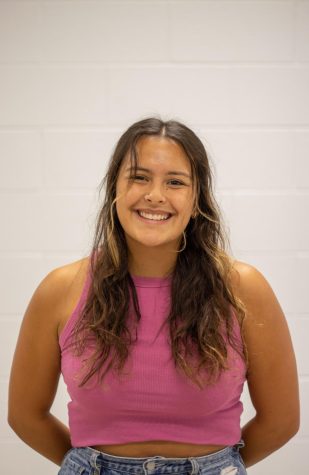
Sabrina San Agustin is a senior and the Design Editor for “The Express.” This will be her second year as Design Editor and third year on staff. Outside of newspaper, Sabrina is part of NHS, NSHS, NEHS, Quill & Scroll, and she is a board member for NAHS. Sabrina also owns her own business where she sells her art online. In her free time she enjoys spending time with family, reading new books and watching her favorite movies. Sabrina is very excited to return to the role of Design Editor and can’t wait to help tell stories through art and design.


